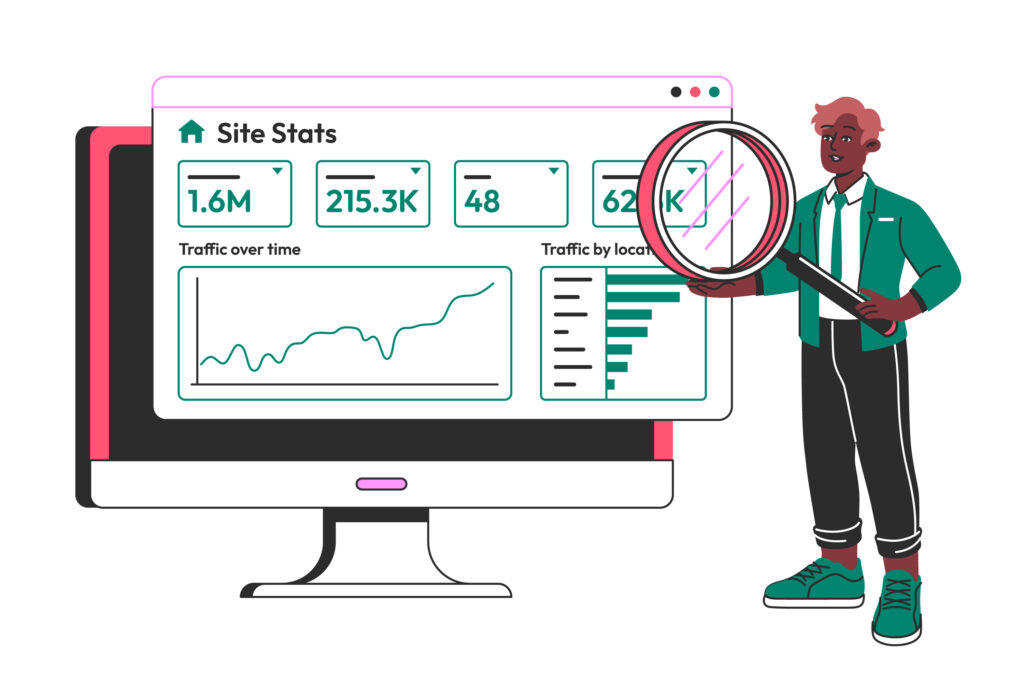Google Ads / Google Ads Audit
What is a Google Ads Audit?
A Google Ads Audit is a thorough review of your Google Ads account that helps identify inefficiencies, missed opportunities, and areas for optimization. According to a WordStream report, 80% of Google Ads accounts are not optimized for maximum performance.
By conducting an audit, you can detect these issues and align your campaigns with best practices, improving the chances of achieving your business goals.

Why Is a Google Ads Audit Important?
A Google Ads Audit is critical to ensure you’re maximizing your budget and achieving optimal ROI.
Research by Google shows that businesses that regularly audit their Google Ads accounts see a 20-30% increase in ROI.
Without audits, businesses may continue wasting budget on underperforming ads, keywords, or poor targeting.
Key Areas of a Google Ads Audit:
The key areas of a Google Ads audit include campaign structure, keyword relevance, ad performance, landing page quality, and budget allocation to optimize results.
- Campaign Structure: Ensuring campaigns are set up in an organized, efficient manner.
- Ad Group and Keyword Relevance: Verifying keywords are targeting the right audience and ad groups are optimized for performance.


How to Conduct a Google Ads Audit?
To start a Google Ads Audit, evaluate your campaign setup, including campaign structure, ad groups, and targeting.
According to Google, advertisers who focus on relevant keywords can lower their cost-per-click (CPC) by as much as 30%.
Audit your keywords to ensure they match search intent and remove any irrelevant ones.
Reviewing historical performance data for seasonal trends and competitor analysis is also key to identifying areas for improvement.
Regular audits help you spot potential opportunities to reduce wasted spend. Research by SEMrush suggests that 60% of accounts could optimize their budget by eliminating underperforming keywords.
When to Conduct a Google Ads Audit?
While a Google Ads Audit should be done at least once per quarter, the best time to perform an audit is when you notice performance stagnation or a rise in costs.
In fact, Google Ads accounts that optimize quarterly show 30% more growth in clicks than those who don’t.
Additionally, perform audits after any major business or campaign changes to ensure your Google Ads align with updated goals.


Steps to Perform a Google Ads Audit:
The steps to perform a Google Ads audit include reviewing campaign structure, evaluating keywords, analyzing ad performance, and ensuring proper tracking and budget allocation.
- Check Account Structure: Review whether campaigns and ad groups are organized to target relevant customer segments.
- Evaluate Keyword Relevance: Ensure keywords align with user intent to avoid wasting spend on irrelevant terms.
- Analyze Ad Copy Performance: Review CTR (Click-Through Rate) for different ads, and test new variations for higher engagement.
- Review Landing Page Quality: Ensure landing pages are optimized for conversions, as poor landing pages can decrease conversion rates by up to 40%.
- Examine Budget Allocation: Ensure budget is allocated efficiently, focusing on high-performing areas.
Benefits of Automating Your Google Ads Audit:
Automating your Google Ads audit saves time, improves accuracy, and provides real-time insights for continuous optimization, helping you stay ahead of performance issues.
- Time-Saving: Automating your audits can cut the time spent on manual checks by up to 50%.
- Accuracy: Reduces human error, offering consistent, reliable audit results.
Scalability: Automating audits allows you to easily manage larger accounts, helping to monitor hundreds of keywords and campaigns without additional resources.


Why Automate Your PPC Audits?
Automating your PPC audits ensures consistent performance monitoring, quicker adjustments, and reduces manual errors, allowing for more efficient campaign management and better results.
- Increased Efficiency: Automated tools can provide detailed reports in real-time, identifying key areas for improvement quickly.
- Consistency: Automated audits ensure your campaigns are continuously evaluated, which improves long-term performance.
- Faster Adjustments: Automation allows for immediate action on performance issues, boosting campaign performance in real time.
Key Components of a Google Ads Audit:
Key components of a Google Ads audit include campaign organization, keyword relevance, ad copy effectiveness, conversion tracking, budget allocation, bidding strategies, and landing page performance.
- Campaign Organization: According to Google, well-structured campaigns have 20% higher conversion rates than disorganized ones.
- Keyword Targeting: Remove irrelevant or underperforming keywords to optimize spend.
- Ad Copy Evaluation: Testing variations consistently improves CTR by an average of 15%.
- Conversion Tracking: Proper tracking ensures you’re accurately measuring ROI and optimizing for conversions.
- Budget Allocation: Allocate more budget to high-performing keywords and reduce spend on underperforming ones.
- Bidding Strategy: Use bid adjustments based on keyword performance to lower CPC and increase efficiency.
- Landing Page Performance: Ensure pages are optimized for speed and relevance, as loading time impacts 53% of mobile users.


Why Choose a Professional Google Ads Agency?
Choosing a professional Google Ads agency ensures expert optimization, customized strategies, and continuous monitoring, leading to improved performance and a higher return on investment.
- Expertise: According to Google Ads experts, agencies can improve account performance by up to 35% in the first three months.
- Custom Strategy: Agencies tailor audits to your specific business goals and KPIs, optimizing performance.
- Better Results: Professional audits often identify quick wins, which can lead to a 20-40% increase in ROI.
- Ongoing Optimization: Agencies monitor campaigns continuously, helping to adjust strategies and tactics in real-time.
Google Ads Audit Templates
Using a Google Ads Audit Template can streamline the process.
Templates ensure consistency and help focus on key metrics.
Studies show that advertisers using templates save up to 25% of the time spent on audits.
Templates are essential for maintaining a structured approach and ensuring that no important element is missed during the audit.


Steps for a Successful Google Ads Audit:
The steps for a successful Google Ads audit include analyzing campaign structure, refining keyword targeting, reviewing bidding strategies, and ensuring accurate conversion tracking.
- Review Campaign Structure: Keep campaigns and ad groups organized to target specific customer needs.
- Check Keyword Relevance: Ensure keywords are tightly matched to your ad and landing page content.
- Analyze Bidding Strategy: Optimize bids based on actual performance data.
Why a Discovery Phase Google Ads Audit Matters
The discovery phase of a Google Ads Audit gathers essential data on current performance and helps set goals for optimization.
Businesses that take a discovery phase report 25% higher success in improving ROI after auditing their Google Ads accounts.


Key Insights to Gain from Your Google Ads Audit
- Improve Keyword Relevance
- Optimize Your Bidding Strategy
- Refine Your Campaign Structure
- Enhance Ad Performance
- Ensure Accurate Tracking
- Increase Conversion Rates
- Maximize Ad Spend Efficiency
How to Do a Google Ads Audit Effectively?
To do an effective Google Ads Audit, evaluate keyword relevancy, bidding strategy, and account structure.
Studies indicate that advertisers who continuously audit and optimize their accounts reduce wasted spend by up to 15%.